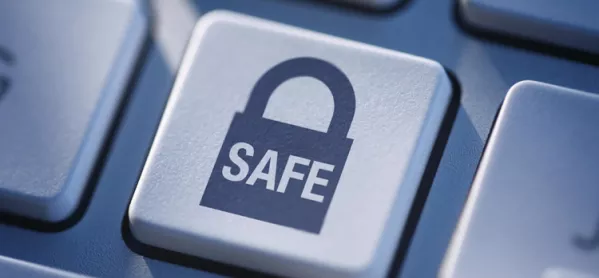- Home
- ‘It will take the whole community to tackle cyberbullying’
‘It will take the whole community to tackle cyberbullying’

I’m currently reading a book called The Secret Teacher. It’s an example of an increasingly popular genre which straddles the space between fiction and non-fiction - it’s ostensibly a novel but all the characters are based on real people the author has encountered during his career teaching in an inner-city state secondary.
I’m about a third of the way through and have already experienced about 20 genuine “LOLs”. There’s also a lot of serious fodder to make you think, including the author’s “Lesson #6 - It’s Always the Teacher’s Fault.” “All misbehaviour,” the author goes on to say, “all academic failure, all failure of bodily functions, all failure of any kind is now the fault of the teacher.”
My reason for mentioning this is that I have spent the past couple of weeks researching the best way for schools to handle the thorny issue of cyberbullying - an issue that has increasingly been presented as the “fault”, or at least the responsibility, of teachers.
“The biggest obstacle we face is schools refusing to accept accountability,” said one of the campaigners I spoke to. “As far as they are concerned, it doesn’t happen on the school grounds, it happens in cyberspace and often anonymously, so there’s a limited amount they can do about it.” He said this with no small amount of indignation, just as I was thinking: “They have a point.”
Having said that, evidence shows that up to 90 per cent of cyberbullying in school-aged children is an extension of “real life” incidents. The web is just another tool at a bully’s disposal and is likely to be part of a spectrum of techniques they are using to target their victim.
While policing individual occurrences of cyberbullying can be tricky, precisely because it often happens anonymously and in a language which can be difficult to assess without context, that doesn’t mean to say that there is nothing a school can do to minimise risk to their pupils.
I talked to representatives from charities Childnet and the Diana Award, both of whom have a range of innovative resources created for schools which can be accessed free of charge. Both organisations were keen to emphasise that their approach was not about expecting teachers to be aware of every single incident of cyberbullying that could be happening to any of their pupils, but more about creating an environment within a school which means it is less likely to happen in the first place. Like so many issues, resolving it involves taking a whole school approach.
The Diana Award recommends getting older pupils involved in the process. They have an anti-bullying ambassador training scheme, which ensures those involved know correct protocols and keep themselves safe. This not only allows young people to “translate” any offensive content (online colloquialisms can be baffling) but also to provide initial intervention before involving any adults.
One school that works with the Diana Award has created an online “safe space” in the form of an intranet, which is monitored by sixth formers for potential bullying. Research shows helping others is beneficial to mental wellbeing, making the scheme a win-win for everyone.
Childnet has created a PSHE module called ”Gone Too Far”, aimed at helping victims of bullying to understand when online communication has “crossed a line”. This is important, since online bullying (much like abuse IRL) is often a subtle art that involves “gaslighting” the victim (a technique that makes them question their sense of reality, thereby absolving the bully of the harm which has been inflicted). Having established what cyberbullying looks like, the module then provides clear signposting advice so pupils know what action they can take.
Childnet has also created the POSH (Professionals Online Safety Helpline) designed exclusively for adults who work with young people. It’s open Monday to Friday from 10am to 4pm and can offer advice on privacy, online reputation, gaming, grooming, sexting, fraud, unsolicited content, extortion, illegal content, online radicalisation, eating disorders, self-harm and online harassment as well as cyberbullying.
Drawing on my own experience in schools, the most effective whole school approaches also involve parents. It is, in my opinion, the duty of parents to have at least a basic knowledge of what their children are doing online and to impose boundaries around their access. In some schools I visit, an entire year group has agreed on a “cut off point” for all internet use and gaming - say 7.30pm. This has the added bonus of giving pupils some respite from technology before they go to sleep - evidence shows screen time directly before bed can reduce the quality and quantity of sleep and therefore negatively impact mental health. This doesn’t directly address cyberbullying, but it does give the overall impression that adults are actively involved and monitoring the cybersphere.
Like so many of the topics I tackle in this column, ultimately cyberbullying is the responsibility of the community. However, speaking to experts working in the area taught me that there is little to be gained from not addressing the issue directly. We all, including teachers, need to make it clear that we are aware of what happens online. At the very least, this threatens the feelings of safety and seclusion bullies feel when they believe they target their victims “anonymously” and without consequence.
Natasha Devon MBE is the former government mental health champion. She is a writer and campaigner and visits an average of three schools per week all over the UK. She tweets @_natashadevon. Find out more about her work here.
Keep reading for just £1 per month
You've reached your limit of free articles this month. Subscribe for £1 per month for three months and get:
- Unlimited access to all Tes magazine content
- Exclusive subscriber-only stories
- Award-winning email newsletters


